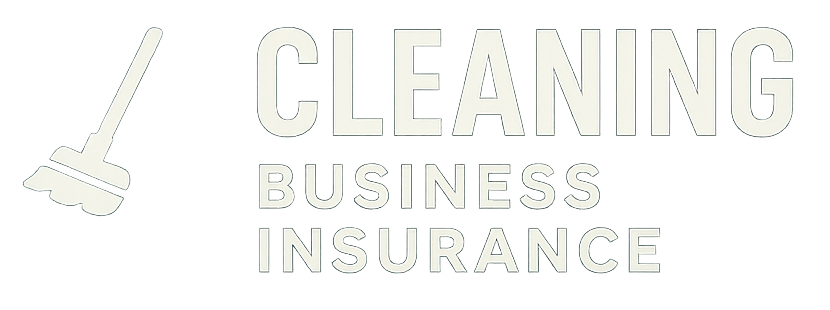For cleaning businesses in California, protecting your company from potential risks is essential. While general liability insurance is the foundation of coverage, many cleaning business owners underestimate the situations where a standard policy limit may not be sufficient. This is where an umbrella insurance policy becomes a critical tool. Umbrella policies provide extra liability coverage beyond your existing general liability, commercial auto, or employer’s liability insurance. In this article, we’ll explore when cleaning businesses need higher liability limits and how an umbrella policy can safeguard your operations.
Understanding the Basics of Umbrella Insurance
An umbrella insurance policy acts as a safety net for your cleaning business. It kicks in when the liability limits on your standard insurance policies are exhausted. For example, if a client’s property suffers major damage and the repair costs exceed your general liability coverage, your umbrella policy can cover the difference, preventing devastating out-of-pocket expenses.
Unlike general liability insurance, which covers specific incidents like property damage or bodily injury within a defined limit, umbrella insurance offers broader protection and higher coverage limits, often starting at $1 million and going much higher depending on your needs. For cleaning businesses, this extra layer of protection can make the difference between a manageable claim and a business-ending financial burden.
Situations Where Cleaning Businesses Often Need Higher Liability Limits
Cleaning businesses face unique risks that can lead to high-value claims. Here are some scenarios where an umbrella policy may be necessary:
High-Value Property Damage: Cleaning businesses often work in commercial buildings, luxury homes, or offices with expensive electronics, furniture, and fixtures. Even minor accidents can escalate quickly if valuable property is damaged.
Client Injuries: Slip-and-fall accidents are common in the cleaning industry. If a client or visitor sustains a serious injury on a property you’re cleaning, the medical and legal costs can easily surpass the limits of a standard general liability policy.
Multiple Vehicles: If your cleaning business operates service vehicles, commercial auto liability policies cover accidents up to a limit. An umbrella policy extends coverage when multiple vehicles are involved in a single accident, which can be critical for larger cleaning companies.
Employee-Related Claims: Workers’ compensation handles employee injuries, but certain lawsuits related to employee actions may not be fully covered. Umbrella insurance can provide additional protection for claims that exceed primary policy limits.
Legal Expenses: In the event of a lawsuit, legal defense costs can quickly add up. Even if your cleaning business is not at fault, mounting legal fees can strain your finances. Umbrella coverage helps cover these costs beyond your primary policy limits.
Factors That Influence the Need for Higher Liability
Not every cleaning business requires an umbrella policy, but several factors increase the likelihood:
Business Size and Scope: Larger cleaning companies or those serving multiple commercial clients generally face higher risks and may need greater liability limits.
Client Requirements: Some clients, especially corporate offices or property management companies, require cleaning contractors to carry higher liability coverage.
Service Complexity: Specialized services like post-construction cleaning, industrial cleaning, or mold remediation often involve higher risks and may justify an umbrella policy.
Location: Cleaning businesses operating in high-cost cities such as Los Angeles, San Diego, or San Francisco are more likely to encounter high-value claims.
By evaluating these factors, cleaning business owners can determine whether a standard liability policy is sufficient or if an umbrella policy is necessary to fully protect the company.
Benefits of Adding an Umbrella Policy
Investing in an umbrella policy provides multiple benefits for cleaning businesses:
Extended Coverage Limits: It supplements existing policies, offering additional liability protection when primary coverage runs out.
Broader Protection: Umbrella policies often cover claims that may not be included under general liability, such as defamation, slander, or lawsuits arising from advertising mistakes.
Peace of Mind: Knowing that your business has an additional safety net allows you to focus on growing your cleaning company without worrying about catastrophic financial losses.
Cost-Effective Solution: Compared to raising liability limits on multiple primary policies, an umbrella policy is often more affordable while providing substantial additional coverage.
How to Decide the Right Coverage Limit
Determining the appropriate umbrella coverage depends on the size of your business, types of clients, and potential exposure. Many cleaning businesses start with a $1 million umbrella policy and adjust based on their risk profile. Business owners should conduct a thorough risk assessment, considering property values, client expectations, and potential lawsuit costs. Consulting an insurance professional who understands cleaning industry risks can help ensure your coverage matches your exposure.
Conclusion
For California cleaning businesses, umbrella insurance is more than just an extra policy—it’s a safeguard that protects your company from high-cost claims that could otherwise jeopardize your operations. Whether you manage a small residential cleaning service or a large commercial cleaning company, evaluating your liability exposure and considering higher coverage limits is a smart, proactive approach. By investing in an umbrella policy, you can operate with confidence, knowing that your business is protected against unforeseen risks and major claims.
